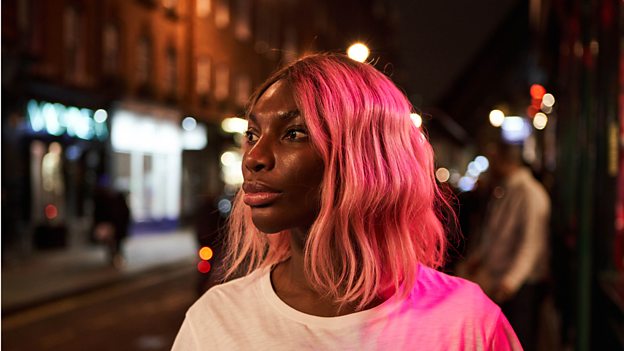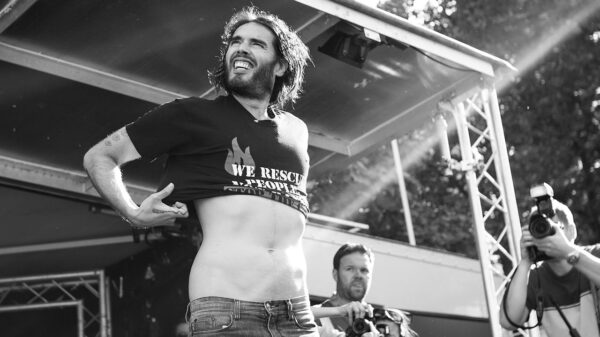Roar writer Maisie Allen discusses the depiction of sexual violence in I May Destroy You.
Michaela Coel’s newest creation, I May Destroy You, has been dominating cultural and entertainment discourse over the past six weeks, and rightly so. Billed as a ‘consent drama,’ based on Coel’s own experience with sexual assault, the BBC show centres around Coel’s millennial influencer protagonist Arabella after she experiences drug-facilitated sexual violence, and its impact on both her and her relationships with the supporting cast. I May Destroy You is not the first show to portray sexual violence, but it is definitely one of the first to highlight it from the perspective of the survivor, rather than from a point of ambiguous objectivity. The show brings to attention current attitudes surrounding sexual violence from both a racial and gender perspective; it critically examines the culture that facilitates these incidents without the sensationalist tropes that often surround media depictions of rape and sexual assault.
Often, sexual violence is used as a plot device to shock the viewers, to highlight aspects of human depravity that exist in society’s dark underbelly of which the audience is allowed to be distanced from. This is repetitive across narrative films and television series, as well as documentaries, and one thing they all have in common is the focus on the perpetrator rather than the victim. I May Destroy You turns this on its head, centering Arabella, and whilst flashbacks act as a plot device (particularly in the latter episodes), everything is told from a present-time survivor viewpoint. Shows with this premise often follow a typical sequence of: incident, reporting, court case, verdict, and the agency of the story lies within external forces which can be deeply problematic.
In I May Destroy You, while reporting is shown carefully and sensitively, it fails to end in the redemption people want to believe in, and importantly brings to light that ‘Half of all sexual offences recorded by the police didn’t proceed further through the criminal justice system.’ Subsequently, time is given to Arabella’s aftercare instead, whether it’s through attending painting classes with her friends, going to a support group for survivors, or attending a last-minute counselling session – the latter of which emphasises the post-traumatic stress associated with surviving sexual violence.
The primary storyline of Arabella’s survivorhood also creates a space for dialogue about sexual violence against Black women, who are often over-represented in statistics. On average, they are more likely to experience sexual assault. The underlying hyper-sexualisation of Black women and the objectification of them as people to be sexually exploited dates back to slavery, where, as Vanessa Ntinu writes for gal-dem, “the concept of rape was never applied to the Black woman simply because she was assumed to be a willing and promiscuous participant,†as opposed to representations of white women as symbols of sexual morality.
However, I May Destroy You contrasts these situations and experiences with fellow cast member and Arabella’s best friend, Kwame, who is also sexually assaulted by another man. His report of this and the treatment he receives from the police are far less sensitive, far more awkward and incredibly isolating. Whilst women disproportionately bear the brunt of sexual violence, men are still far less likely to report sexual assault than women, due to its stigmatisation and the conflict it presents within societal notions of masculinity.
The very idea of these above depictions being refreshing and radical begs the question: Why has it taken this long? Why has it taken so long to recognise the undercurrent of sexual violence and rape culture that pervades every aspect of life – from workplaces to nightclubs to university campuses? The normalisation of this leads to a belief of unacknowledged rape and sexual assault, causing further trauma to survivors in later years rather than helping them with immediate recovery, just because our world isn’t ‘ready’ for these conversations.
KCL isn’t exempt from this. An article published by The King’s Tab last month revealed that nearly a third of students had experienced unwanted sexual attention in SU venues. Yet the only methods to tackle this is an anonymous reporting tool that doesn’t even count as a formal reporting process – and the same article found that almost 9 in 10 students didn’t know how or where to report sexual harassment and assault – likely because conversations around sexual violence are still largely taboo, which is reflective across all university institutions.
As such, it is no wonder that I May Destroy You feels like the start of a new, more intersectional approach to consent culture discourse, as the very nature of our current attitudes is lacking in both nuance and empathy. A fresh dialogue is in order alongside fresh media representations of sexual violence, and it should come with new levels of accessibility and recognition previously not afforded to survivors. When it comes to media portrayals of sexual violence, Coel’s show shouldn’t be an exception to the rule.
I May Destroy You is available on Hulu and BBC iPlayer.

















